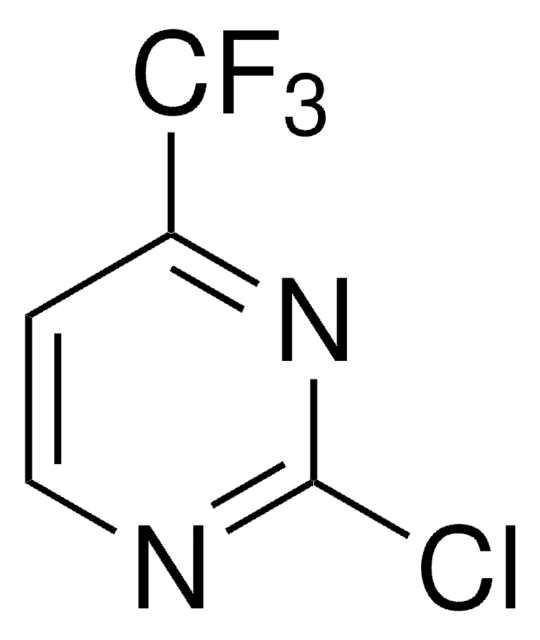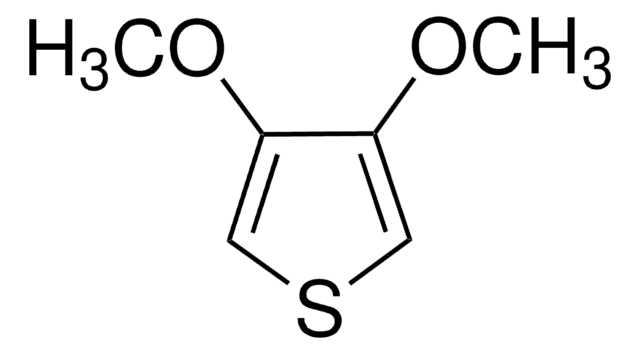483028
3,4-Ethylenedioxythiophene
97%
Synonym(s):
2,3-Dihydrothieno[3,4-b]-1,4-dioxin, EDOT
About This Item
Recommended Products
Assay
97%
refractive index
n20/D 1.5765 (lit.)
bp
193 °C (lit.)
density
1.331 g/mL at 25 °C (lit.)
storage temp.
2-8°C
SMILES string
C1COc2cscc2O1
InChI
1S/C6H6O2S/c1-2-8-6-4-9-3-5(6)7-1/h3-4H,1-2H2
InChI key
GKWLILHTTGWKLQ-UHFFFAOYSA-N
General description
Application
It can be used:
- As a reductant in a one-pot synthesis of gold nanoparticles from HAuCl4 (254169).
- As a starting material used in palladium-catalyzed mono- and bis-arylation reactions.
- In the synthesis of conjugated polymers and copolymers, with potential optical applications.
Signal Word
Danger
Hazard Statements
Precautionary Statements
Hazard Classifications
Acute Tox. 3 Dermal - Acute Tox. 4 Oral - Eye Irrit. 2
Storage Class Code
6.1C - Combustible acute toxic Cat.3 / toxic compounds or compounds which causing chronic effects
WGK
WGK 2
Flash Point(F)
219.2 °F - closed cup
Flash Point(C)
104 °C - closed cup
Personal Protective Equipment
Choose from one of the most recent versions:
Already Own This Product?
Find documentation for the products that you have recently purchased in the Document Library.
Customers Also Viewed
Articles
Conjugated polymers offer charge transport between inorganic, electrically conducting metals and organic, proton-conducting biological systems.
Advancements in bioelectronics, incorporating self-healing materials for wearable devices, and measuring bioelectric signals to assess physiological parameters.
Our team of scientists has experience in all areas of research including Life Science, Material Science, Chemical Synthesis, Chromatography, Analytical and many others.
Contact Technical Service




![2-Chloromethyl-2,3-dihydrothieno[3,4-b]-1,4-dioxine 95%](/deepweb/assets/sigmaaldrich/product/structures/422/187/4cc7b858-9e06-4ce2-8d39-d817b8313964/640/4cc7b858-9e06-4ce2-8d39-d817b8313964.png)






